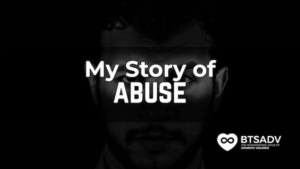“Don’t let anyone look down on you because you are young, but set an example for the believers in speech, in conduct, in love, in faith, and in purity.”
I Timothy 4:12 (NIV)
We were all young once, or maybe some still are. Youth brings laughter, opinions, attitudes, more laughter, some crying and a whole lot of worrying for parents. Talking about healthy relationships with your teen can help ease your worries in the future.
We raise them to leave us and then they leave us and we are left hoping and wondering if we did the best we could for them. Most parents just want to get it right one more time than they get it wrong.
Talking to your teens about healthy relationships
The basics are easy, right? It’s the parent’s job to make sure they get the 3R’s and all that. But when do you begin to speak to them about one of society’s greatest ills: domestic violence? For the answers to those questions, it was best to go straight to the source. Following is an interview with two teenage family friends. Names have been changed for privacy purposes.
Kyle and Jennifer are 16 and 13, respectively. Kyle will be a junior in high school and Jennifer will start high school in the fall. They are bright, articulate and funny kids. For the most part, they are members of an intact family with only a recent change in that status. The conversation with them was not as clinical as it was practical, but the answers to some of my questions are surprising.
Talking about domestic violence
AW: What is domestic violence?
Kyle: “Isn’t that when you hit a girl?”
Jennifer: “It’s not just girls that get hit, boys do too.”
AW: “Does anybody at school talk to you about domestic violence?”
Both: “Probably but those sessions are so boring I don’t listen”
AW: “Ok, tell me how we can get you to listen in those times”
Kyle: “We don’t need somebody to stand in the front of a room and talk to us from their tall tower. We don’t compute statistics and data. If you want us to listen, talk to us openly and honestly. Tell us stories, show us pictures, give us a reason to sit up in our chairs and listen. A lot of times they just speak “at” us. And for us, it is just another reason to get out of class.”
He went on to say that he prefers if these sessions are not co-ed, indicating that if his girlfriend were present, he would not hear a thing anybody said to him.*
Jennifer: “I agree, and also make sure to pay attention to the time of day. Sometimes they pull us out of the hardest classes and we are all stressed about that, maybe even just plan a day to address it so we don’t stress about missing school. This seems important enough and they should care enough about practical things like that. It seems they always pick the worst times. Maybe even after or before school, but make it required”
AW: Kyle, you have a girlfriend, talk to me about that relationship, are there ever points of contention? Contention to the point where you need to release some anger?
Kyle: “I don’t hit girls because my dad taught me not to hit girls, so it does not matter if I need to let off some anger, it’s never ok to take it out on her”
The result
Both of them indicated that they really took their lead on this issue from their parents. This conversation was an opportunity for them to ask a survivor questions and talk about healthy relationships. They asked lots of questions, neither of them able to comprehend the reasoning to harm another human being.
That led to a conversation with Kyle about his relationship with his girlfriend. Suddenly, it became an educational opportunity for him to realize that controlling behavior often starts at his age. Since the majority of his communication with his girlfriend is on text, the conversation naturally turned to controlling text messages. It was good to give him examples and even show him the disturbing BTSADV video with examples of controlling text messages. He seemed to walk away from it having learned as much as he taught.
What can we do to help?
The conversation with both of them was interesting. They were the ones who jumped to their school as the source of information regarding all social issues. Most people would agree that it is never too early to begin talking about healthy relationships with your teen and about boundaries. As they get older, you can give some of those boundaries a name like domestic violence, rape, bullying or any number of the things they need to process. It is important that they never remember a time when they did not know that harming another human being is wrong. Children who see domestic violence in the home are more likely to end up on one side of the domestic violence equation themselves.
It is time for us to declare war on domestic violence and it is time for us to throw every resource into educating children as we can. They are the only ones that can write the narrative for their generation. Talking about healthy relationships with a teen is the first defense against DV.
We have to help them and not look down on them because they are young. They are watching, listening, and feel pain. They need to know that we are willing to listen and want to help them navigate healthy relationships for themselves.
*Editor’s Note: While single-gender spaces can open the floor to unique conversations, it can be challenging to hold these dialogues when considering transgender youth (young people who don’t identify as either “male” or “female” in the binary) or young people who identify as gay, lesbian, bisexual, or other sexual identities where they may still be in the room with an intimate partner.
Donate to BTSADV to help spread awareness to teens about healthy relationships and DV


